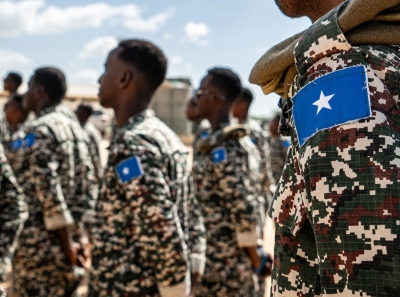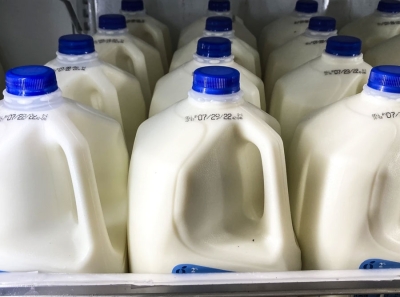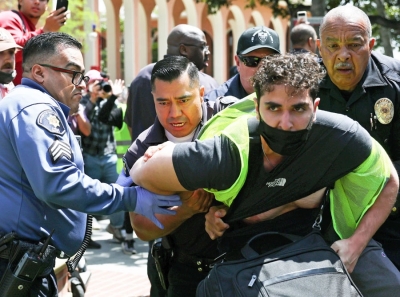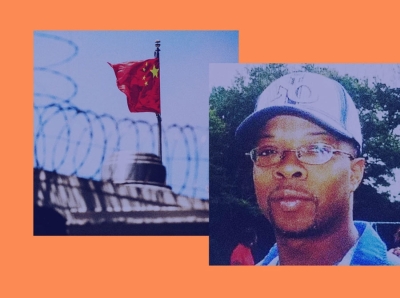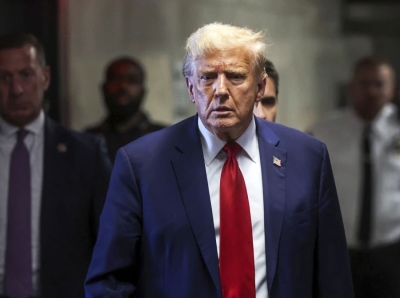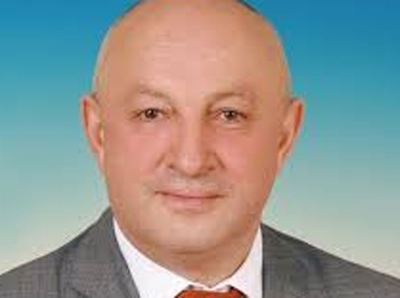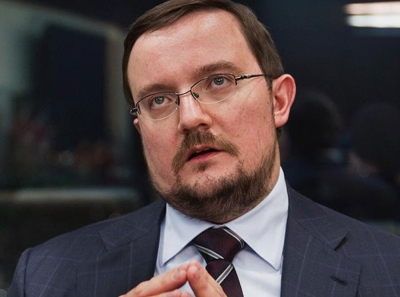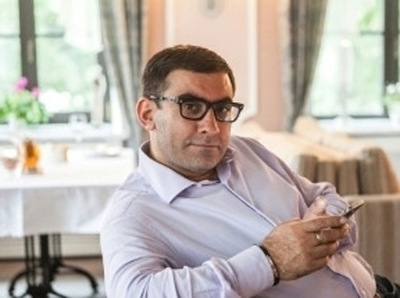Two-year annniversary of war on Ukraine: what now?
At least 10,000 dead Ukrainian civilians, 6.5 million refugees and 3.5 million displaced persons within Ukraine, according to the UN. These are the tragic statistics of Russia’s full-scale invasion of Ukraine on 24 February 2022. On top of that, estimates put the number of soldiers killed in action in the hundreds of thousands; Zelensky recently spoke of 31,000. What should the next steps be in the war? Europe’s press weighs up the current situation and looks to the future.
Moscow could attack from all sides
The war is starting all over again, fears Avvenire:
“The Russian invasion began with advances along four lines, namely in the north towards Kyiv, in the east towards Kharkiv, in the south from Crimea and in the southeast from the occupied Donbass. For days now, Ukraine has been expecting a repeat of this pincer movement. Perhaps this is more about fear than a real threat. The fact is that a new ground offensive on Kyiv and Kharkiv is being considered once more. And the borders are becoming a spectre to be guarded. All this in conjunction with the escalation of aerial attacks across the country and increasingly ‘invisible’ missiles and drones being launched in swarms.”
Drones a potential game changer
gazeta.ua describes a way for Ukraine to gain the upper hand on the battlefield:
“If the Ukrainian army had been as experienced in the use of drones two years ago as it is today, the invasion would have failed right from the start. A genuine revolution comparable to the invention of firearms is taking place with the use of drones in warfare. Drones are replacing aircraft, artillery, tanks and snipers. ... In such circumstances, armies have to change. ... But in the end this change could be the straw that breaks Ukraine’s deadlock and gives it the targeted technological advantage in the fight against a much stronger enemy.”
Gap between political leaders and the public
Adevărul columnist Cristian Unteanu comments on the recent opinion polls:
“If this is true, it shows a clearly visible perception gap between the public, which has been exposed to countless pressures, from the pandemic to the economic consequences of conflict, and its political and military decision-makers, who are committed to a certain vision and have already reorganised the economy in part so that Ukraine receives the promised massive arms deliveries. ... It remains to be seen whether these poll results will have any significant impact on the question of what the European political stage will look like from June onwards.”
War fatigue becoming a critical challenge
La Vanguardia sees an understandable but dangerous development:
“The Kremlin will keep the war going until it has achieved its objectives. ... And Kyiv knows that the complete liberation of the Russian-occupied territories and a return to internationally recognised borders is an impossible dream. Doubts about victory are also spreading among the Ukrainian population. This scepticism is understandable because the tragic reality is feeding the fatigue of a population whose morale is under attack on a daily basis and which has witnessed the deaths of thousands of soldiers and civilians. ... The conflict looks set to drag on and could be increasingly beset by ‘Ukraine fatigue’. A challenge for Europe, because Western values and interests are at stake.”
Say no to defeatism
Europe must not give up now, Le Figaro warns:
“The priority must be to help Kyiv get through the critical phase in 2024 and to get our defence industry up to speed in the meantime. ... Defeatism on Ukraine would seal our fate for a long time. Donald Trump plans to undermine Nato’s deterrent capabilities if elected. There is the risk that tomorrow Europe will stand alone against the will to power of an authoritarian Russian empire. ... Europe faces an existential choice: either the warlord from the Kremlin has Europe torn to pieces or Europe turns itself into a force capable of standing up to him.”
A new iron curtain?
Neatkarīgā finds the poll results worrying:
“Whereas for Russia and Ukraine the goal of the war is to win, then the West has a completely different key objective: to prevent a war on its own soil. ... People are prepared to agree to anything simply to avoid war. ... In other words, the West can talk as much as it wants about permanent support for Ukraine, but in reality it already sees Ukraine as doomed to failure. ... There is the growing conviction in Europe that Putin will not come with tanks after Ukraine’s capitulation. That we will go back to living like during Cold War again.”
Belief in successful resistance dwindling
The attitude of Europeans has changed in the past year, Večernji list notes, with reference to a study by the European Council on Foreign Relations:
“Support for Ukraine among Europeans remains high, but today, two years after the Russian invasion, barely ten percent of Europeans believe that Ukraine can defeat Russia. ... Europeans see a ‘compromise solution’ as the most likely outcome of the conflict. ... This time last year, more Europeans believed that Ukraine needed to regain all the territory it had lost. Now more believe that politicians need to find a more ‘realistic’ approach centred on defining what an acceptable peace would be.”
Numbed and dehumanised — or dead
Ukrainian writer Andriy Lyubka sums up in Expresso:
“During the two years of war, we have learned to trust fate. We have become used to the dead around us and resigned ourselves to the thought of our own sudden death. We no longer react so strongly to terrible news, our emotional skin has become thicker. Or it has gradually been extinguished, because with each passing day of the horror that defines our lives, we have all slowly died. The human, the normal in us, is dying. Everyone has become a victim of the war, both those who have been killed by it and those who have been lucky enough to survive (so far).”
The turning point came back in 2014
The change in Russian society began long before the full-scale invasion, economist Vladislav Inosemtsev explains in The Moscow Times:
“The ten years since the annexation of Crimea have seen a sweeping transformation of Russian society. Little by little, the Kremlin has managed to force Russians to accept the severing of existing ties with the world, to tighten their belts unquestioningly, and not to resist the raising of the retirement age and the many-fold increase in military spending. We have seen how spontaneous demonstrations have disappeared from the streets and squares over these ten years, while support for alternative politicians has become grotesquely low. ... Even the ‘split of the elites’, which almost all opposition members had predicted, has not materialised.”
Russia has achieved nothing
Putin has not achieved any of his self-imposed war aims, e-vestnik points out:
“The so-called denazification is impossible in principle because there is no Nazi regime in Ukraine, so of course it has failed. ... Demilitarisation has also failed. Russia has achieved the opposite — Ukraine is much better armed today than it was before the war. ... Nato’s expansion has not been stopped either, on the contrary. Traditionally neutral countries like Finland and Sweden have joined Nato [or will do so shortly] because they are afraid of the Russian aggressor. Ukraine is a candidate country and its population is now much more in favour of Nato membership.”
Time for bolder, faster support
Timothy Garton Ash writes in Eesti Päevaleht:
“The leaders of the larger European countries should take a lesson from smaller ones such as Denmark, the Czech Republic and Estonia. Given the critical situation on Ukraine’s frontline, they must be bolder, faster, more decisive. And they need to find a more direct, more passionate, more inspiring language – the kind of language that would certainly have been used by Scholz’s personal hero, former chancellor Willy Brandt. Societies that are still enjoying a comfortable peacetime lifestyle, and where many apparently believe this war can soon be over with a negotiated compromise peace deal, must be shaken awake.”
Sanctions not a priority for the Netherlands
The economic sanctions against Russia are being implemented half-heartedly, NRC columnist Hubert Smeets notes:
“Circumventing Western sanctions has become a whole new economic branch where dummy corporations rake in good money thanks to the war, and not only in Moscow but also in the Netherlands, where the authorities don’t prioritise law enforcement in trade with Russia. ... Under the guise of a fundamental rejection of trade barriers, turning a blind eye apparently remains a cornerstone of Dutch trade culture, despite the European war which has also been threatening the national democratic legal order since 2022.”
Many proud Ukrainians
Ukrainian-based author Christoph Brumme writes in the Neue Zürcher Zeitung that people value their freedom despite the war:
“Never before have so many Ukrainians been proud of their culture, never before have so many songs been sung about their love for their homeland. More than ever, people appreciate living in a free country where, despite martial law, they can criticise the government’s policies and demonstrate against them. In the land of the mortal enemy you get arrested for reading out the constitution or holding up a blank sheet of paper in a public square.”
It could have been the Baltic states
Neatkarīgā comments:
“Looking back today at the events of two years ago, only one conclusion is possible: all of us (in Latvia and the Baltics) were extraordinarily lucky that Putin chose Ukraine as his target. If he had thought of putting Nato on the spot and invading the Baltic states to install a pro-Kremlin government in Riga, Tallinn and Vilnius (most probably without even formally annexing them) in early 2022, Nato would hardly have been able to prevent them from succumbing to Russian domination. ... Fortunately, Nato today is not the same Nato as it was at the beginning of 2022.”
Joint defence could collapse
This is also a war over public opinion and elections in the West, warns L’Obs:
“The Kremlin has found allies in the very heart of the US Senate. ... Will Europe be facing a Russian imperialism gone mad a few months from now? Can the dream of a common defence, born out of the ashes of 1945, still become a reality? At a time when far-right movements could strengthen the pro-Russian positions of Hungarian leader Viktor Orbán, this is one of the crucial questions of the upcoming European elections on 9 June.”
Don’t get used to the status quo
El Periódico de Catalunya speculates:
“Much of Europe has apparently become accustomed to the war in Ukraine, although the invasion of Ukraine and Russia’s interference in European politics will undoubtedly be one of the central topics at the Munich Security Conference. ... [The late UN Secretary-General] Boutros Boutros-Ghali said that you can’t solve a crisis if you don’t talk about it. This is not the case with the war in Ukraine, but more and more voices are calling for Ukraine to give up the Donbas. ... That would set a dangerous precedent because it would violate the principle that the borders of European countries can only be changed with their express consent.”
Europe’s future is at stake
French Foreign Minister Stéphane Séjourné summarises in Le Monde why Europe must not let up in its support for Ukraine:
“We must not give in to the temptation of weariness or indifference. ... Today’s efforts in Ukraine are nothing compared to the efforts we would have to make against a Russia that feels victorious. Let us retain control over energy and food prices, over our freedom and our destiny. Let us choose unity over division, as a country and as Europeans. Europe is a peace project, and the future of Europe will be decided in Ukraine.”
Reinforce air combat and recruit new troops
Spotmedia analyses the options at the disposal of the new Ukrainian military commander General Oleksandr Syrsky:
“The new commander faces two major challenges which his predecessor was unable to overcome: the lack of airspace control and the dwindling number of combat troops. The fact that Ukraine will soon be able to deploy more F-16 fighter jets and the launch of domestic drone production could give Ukraine more control over the airspace. ... That leaves the problem of troops, which can only be solved by a political decision to mobilise a new wave of recruits.”
Dominant in naval warfare even without a navy
The Economist admires Ukraine’s military prowess at sea:
“The sinking of the Caesar Kunikov is yet another indication of how, even without much of a conventional navy, the Ukrainians are winning the war at sea. They reckon they have taken out at least a third of the Black Sea Fleet ... and forced the remaining vessels to operate at much greater distances from Ukraine’s coast. ... The most important consequence so far of Ukraine’s naval campaign has been the opening up of a corridor for commercial shipping to carry the country’s grain exports.”
Russia overestimating its strength
Looking back at the country’s history, The Moscow Times relativises the myth of invincibility that is widespread in Russia:
“The Russo-Japanese War showed that successful quasi-Western countries could inflict local defeats on Russia in conflicts that can be described as border disputes. ... This was soon followed by the destruction of the Soviet army in Poland in 1920 and the crushing defeat of Josef Stalin’s troops in the Winter War with Finland. In short, the theory of Russia’s ‘invincibility’ requires serious corrections: while it was (and remains) impossible to inflict a total defeat on the country that would lead to its capitulation and occupation, its rivals are quite able to secure victories against it on certain fronts.”
Help Ukraine defeat the enemy
Supplying arms to Ukraine is also the best protection for the rest of Europe, security expert Rainer Saks writes in Maaleht:
“The Western powers have missed their chance to force the aggressor into a strategic retreat. ... The difficulties and delays in weapons deliveries were among the reasons why Ukraine was unable to launch a new offensive in 2023. This strategic clumsiness must be overcome. At the moment the Nato member states need not fear an imminent Russian attack. Russia lacks the necessary resources. A big boost in support for Ukraine would tie up Russia’s military capacities even more.”

